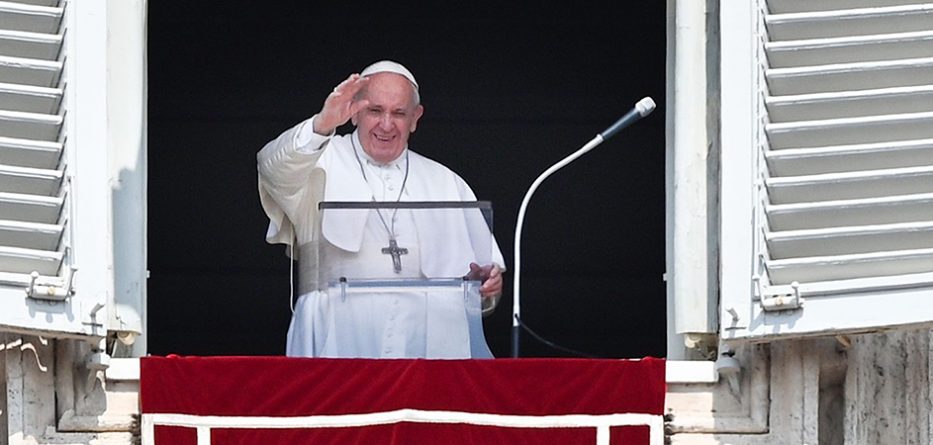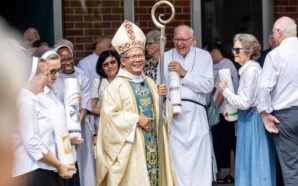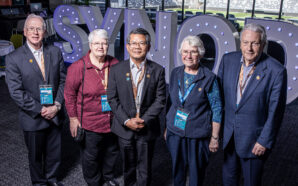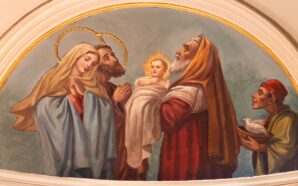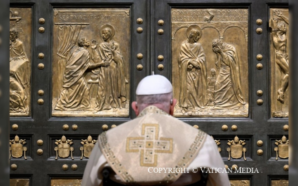When I checked the news headlines on X Tuesday morning, I noticed several posts referring to Hope: The Autobiography, the book by Pope Francis that was announced to the world back in October — hyped up as an autobiography that was originally meant to be published after his death — but a decision was made to print it now, in celebration of the Holy Year 2025.
I was greatly anticipating this book, but I lost track of the publication date and hadn’t gotten around to requesting an advance review copy. So I bought it for both Audible and Kindle, had some caffeine, and immersed myself into a multi-sensory, multi-hour tunnel-vision speed-reading session of Hope. I listened to the narration of actor Peter Ganim at 2.5 speed as I focused on the words on my Kindle, pausing to take notes and highlight quotes (and occasionally to breathe). When I was about 80% finished, a mutual friend sent me a link to Austen Ivereigh’s review in The Tablet, and I could tell by the headline that Austen had some criticism.
I decided to plow through to the end before reading any other reviews, however. Despite its 300-page length, I never felt bored or bogged down while reading, even though I had several deja vu moments in the second half of the book, especially in Chapter 23 (“In the Image of a God Who Smiles”), where Francis tells a series of Catholic jokes. Eventually, I realized that much of this chapter was reproduced verbatim as the pope’s New York Times op-ed from December 17.
Austen’s review was harsh but fair, considering his own experience as a papal biographer and coauthor. As it turns out, calling Hope an autobiography (and adding that it was originally scheduled to be published after his death) is mostly a brilliant marketing ploy. Hope is not Pope Francis’s memoirs, nor is it a structured retelling of the events of his long life. In reality, this is another book-length interview of the pope in which he shares thoughts, memories, lessons, and stories —- along the lines of The Name of God Is Mercy (written with Andrea Tornielli and published in 2016) or last year’s Life: My Story Through History, in which Pope Francis recounted moments of his life against the backdrop of significant world events in a dialogue with journalist Fabio Marchese Ragona.
Francis’s coauthor this time was the Italian writer Carlo Musso, who — rather than adopting the interview style used by Tornielli or Ragona — opted for the style employed (invented, even) by Ivereigh in Let Us Dream: The Path to a Better Future, in which Pope Francis articulated his vision for society in the post-Covid world. In Let Us Dream, Ivereigh removed himself from the picture, endeavoring to let the Pope’s words speak for themselves. Unlike Hope, however, Let Us Dream had a strong purpose and a clear vision. It was written in two languages simultaneously, English and Argentine Spanish, and every sentence was reviewed by the pope.
Hope, on the other hand, is an English translation of an Italian book-length interview. I picked up on several awkwardly phrased sentences, but Ivereigh found quite a few technical errors that might have been caught by a more ecclesiastically minded translator or editor:
It amazes me that Penguin Random House could not have found a translator and editor familiar with the papacy and Catholicism, or at least the nous and humility to ask one who was (yes, I was available) to check it over. It wasn’t the “Aparecida episcopal conference” in 2007 but the general conference of the Latin-American episcopate (CELAM) meeting at Aparecida. Rather than “the secretary-general of the Papal State”, Sister Raffaella Petrini is secretary-general of the Pontifical Commission for Vatican City State, the papal states having disappeared in 1870. The Focolare movement is always called that, in every language; it is not “the Hearth movement”.
Still, Ivereigh does concede that Hope does a fine job of telling Pope Francis’s early life, sharing new details of his experience as a young child and as a teenager approaching manhood. Francis discusses and tells new stories about his parents and his relationship with his four siblings, including his younger sister, Maria Elena, the only one still living. He described calling her upon his election as pope:
“‘But how are you, how do you feel?’ she asked. I smiled: I’m fine, I’m fine, relaxed. The words had difficulty coming out. We gave each other a hug by telephone. We are always together, we said, in each other’s hearts.” (p. 192)
Ivereigh at one point concedes, “To most readers it will seem fresh; and I’m good with anything that repackages Francis – the great spiritual authority of our times – for new audiences.”
This, in fact, may be Hope‘s saving grace. I, like Austen, quickly realized that this was not a historical biography. It was no “final testament,” nor was it an attempt to advocate for a grand vision. In this book, Pope Francis is not trying to make a final argument for his papacy. In many ways, it’s a total mess. It jumps around in time — from the 1960s to the 1980s and then back to the 1950s. Although Hope is not well-organized, it does somehow manage to (barely) hold together organically as Francis shifts from one personal story to another, before diving into a discourse of a weighty subject like war or artificial intelligence or the errors of traditionalism.
Hope is in some ways a reflection of the wild ride Pope Francis has taken us on since his election in 2013: often unpredictable and surprising, also accessible, engaging, and never boring. He’s a high extrovert, and he has a tendency to blurt out whatever’s on his mind (I feel a kinship with him in this regard). I think Hope would be a good introductory (or re-introductory) text for learning about Pope Francis. It’s an adventure to read because it goes in so many directions.
One strength of Hope is the vulnerability Francis shows in this book. Christopher Lamb’s review does an excellent job of describing this aspect of the book in his review for CNN.
There were many small stories in Hope that struck me and stay with me. On one occasion he recalls actions he regrets deeply from years before, involving Fr. Enrico Pozzoli, the priest who baptized him:
I feel deep affection and a great debt toward Father Pozzoli. So many beautiful memories. And two painful episodes that I wish I could relive so that I might behave differently. One concerns the death of my father, on September 24, 1961, when I was not yet twenty-five. Father Enrique comes into the chapel of rest, wants to take a photo of Papá with his five children…But I feel embarrassed, and with the self-importance typical of young people I manage to make sure it doesn’t happen. I think he noted my attitude, even if he said nothing…The second occurred only twenty days later, when he himself was about to die. A few days before, I went to see him at the Italian Hospital. He was asleep. I don’t let them wake him. I leave the room and remain talking to a priest who was there. Soon after, another priest comes out and says that Father Pozzoli has woken; they have told him about my visit, and he asks if I’m still there. But I tell them to say I’ve already gone. I don’t know what happened to me, whether it was shyness, ineptitude, or grief—grief for the death of my father on top of this new prospect of grief, or something else. But one thing is certain: I have often felt a deep pain and suffering for this lie of mine. How I wish I could “replay” that scene…
And yet that man, even today, is a point of reference in my daily life, and I never fail to remember him, also in my prayers. (p. 50)
That he recounted these moments — “small” moments of selfishness — and regrets them, and was willing to share them, suggests a conscience that has been examined deeply and often, even in the chaos of human life. These sorts of memories provide enough nuggets of humanity, wisdom, and vulnerability that ultimately make Hope a worthwhile read.
Mike Lewis is the founding managing editor of Where Peter Is. He and Jeannie Gaffigan co-host Field Hospital, a U.S. Catholic podcast.
With thanks to Where Peter Is and Mike Lewis, where this article originally appeared.




